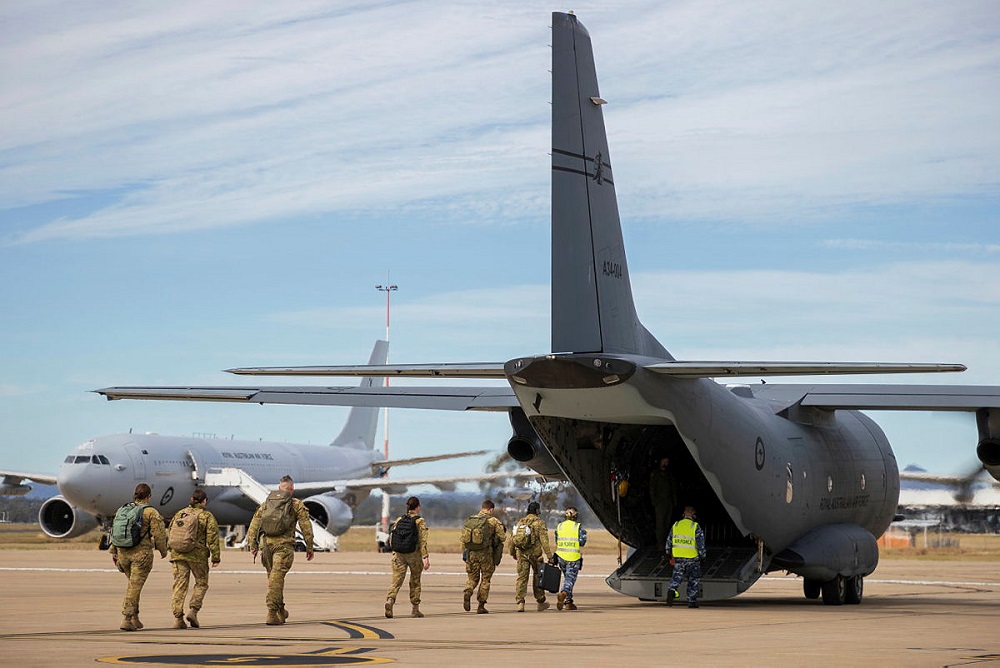Defending the Pacific to defend Australia

Australia is facing the largest challenge to its position of strategic primacy in the South Pacific since World War II as China continues to build relationships with Pacific island countries and enter into security agreements that are undermining Australian influence and security in the region.
The seriousness of the threat was underscored by Foreign Minister Penny Wong’s visit the Pacific soon after being sworn into office in an effort to reassure the region of Australia’s commitments to its neighbours. Her visit coincided with a 10-day, eight-country tour by China’s foreign minister and followed the signing of a security agreement between China and Solomon Islands.
While Pacific island countries declined to sign up to an extensive regional economic and security deal proposed by China, it’s unlikely that Beijing will see that as the end of the matter. We should therefore look for ways to bolster the security of the region, and—by extension—our own.
Our interests in maintaining a position as the security partner of choice in the South Pacific are clear. Pacific island countries sit strategically between us and our major ally the United States. A Chinese military presence in Pacific island countries gives it proximity to our major population centres that would reshape our peacetime military posture and restrict us to home duties in a regional conflict. While the Solomon Islands governments has ruled out a Chinese military presence under the agreement, it is sobering to note that Honiara is less than 2,000 kilometres from Cairns and its naval base.
The Pacific island countries themselves are also relatively undefended. Only Papua New Guinea, Tonga and Fiji maintain militaries of their own, and in each of those cases their military forces have a low level of capability that is directed mostly towards internal security, peacekeeping and a ceremonial expression of sovereignty.
For the rest, defence and security are handled by a mixture of diplomacy and police forces. Only the so-called Compact of Free Association States—Palau, the Federated States of Micronesia and Marshall Islands—have formal security arrangements in place with the United States.
This model makes the US military the de facto armed forces for those states at the exclusion of all others. As part of this arrangement, the citizens of Palau, Micronesia and Marshall Islands can join the US armed forces. Even if deployed beyond the Pacific, citizens of these countries are in effect serving in the defence of their own nations, since they are part of the defence force that defends their country.
This is a style of arrangement Australia should consider with those Pacific island countries that don’t have defence forces of their own.
Under such an arrangement, Australia would provide a treaty-level security guarantee to defend a nation’s territory from external aggression. In return, the Australian Defence Force would become the de facto defence force of those countries, and their citizens would be able to join the ADF.
This would create not only exclusivity for security cooperation with Australia, but also employment opportunities for well-remunerated, skill-generating jobs in the ADF. These jobs would bring in remittance income and community interest in maintaining Australian security cooperation. The arrangement would also help build valuable people-to-people links between the ADF and Pacific island countries and improve cultural knowledge and understanding.
Such an arrangement would need to be enabled by more ADF exercises and interaction in those Pacific island countries. It would also require a modest increase in personnel deployed to the Pacific, which could be underpinned by a resident ADF officer serving as defence adviser to the relevant governments and the addition of ADF recruitment advisers to facilitate local recruitment.
If strategically it’s agreed that the security, stability of Pacific islands countries is important to Australia’s security, then we need to take steps to provide that security. Security guarantees and an ADF that is part of the local community in these countries would binds us to the so-called Pacific family in a way that is practically beneficial to both parties and negates the ambitions of our competitors.
This region—which is vital to our security and our interests—is being contested by an adversary with resources, time and an absence of democratic scruples. We need to take security partnerships out of that contest, and this could be the way to do it.
Managing relationships in the Pacific amid China’s push is a difficult task, and Australia still has some work to do in repairing its image, since all too often it is seen as ignoring the concerns of Pacific island countries. Fiji, for example, is worried more about the existential threat of climate change than the great-power competition playing out across the Pacific. Meanwhile, a paternalistic view that a chequebook can solve all problems hasn’t endeared many countries to Australia’s cause.
In that context, the direct and indirect benefits of deeper ADF links could well offer the sort of serious, long-term commitment that Pacific island countries have been seeking from Australia. Rather than simply offering dollars and positive sentiment, we would be working together to safeguard our futures and the security of the region.
